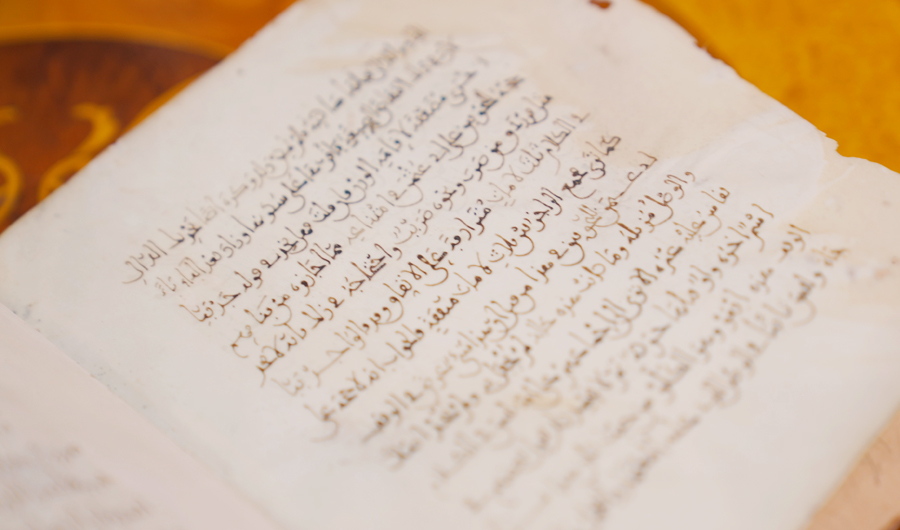JEDDAH: The King Abdulaziz Public Library has revealed a rare manuscript dating back more than a thousand years that sheds light on the science of Arabic grammar.
“Al-Murib sharh kitab al-Qawafi lil-Akhfash” was written by Abu Al-Fath Othman bin Jinni Al-Mawsili and provides detailed explanations for one of the oldest manuscripts in Arabic grammar, “Al-Qawafi,” written by the linguist Al-Akhfash al-Akbar.
Bin Jinni's manuscript, which was copied in the ninth century, was written in Moroccan-Arabic calligraphy and is considered to be an important scientific, historical, and cultural reference, especially since its author was one of the most renowned specialists in linguistics, rhetoric, grammar, and morphology of his time.
The one-volume manuscript has 58 parchments made of goatskin, some of which needed treatment.
FASTFACT
‘Al-Murib sharh kitab Al-Qawafi lil-Akhfash’ was written by Abu Al-Fath Othman bin Jinni Al-Mawsili and provides detailed explanations for one of the oldest manuscripts in Arabic grammar, ‘Al-Qawafi,’ written by the linguist Al-Akhfash Al-Akbar.
It begins: “Masculine and masculine, feminine and feminine, foolish and foolish, etc. Hence the plural of one of them is similar to the plural of the other, so the plural of foolish is foolish, and lovelorn is lovelorn.”
It concludes: “We build our homes based on the standards of our enemies. We do not seek protection and we do not justify a deficiency, so is the poem if it was in contradiction to the rule and to the accustomed model, then it is called deficient and full of defects. Derivation was made and the book was fully completed with the grace and help of God Almighty, and may God’s Peace be Upon Prophet Muhammad, in Dhu Al-Hijjah H406.”

For hundreds of years, Arab and Muslim scholars specialized in science, art and literature and made discoveries that are still used to this day. Many of these scholars sought out rare finds and translated them into Arabic. (Photos/King Abdulaziz Public Library)
For hundreds of years, Arab and Muslim scholars specialized in science, art and literature and made discoveries that are still used to this day. Many of these scholars sought out rare finds and translated them into Arabic.
Bin Jinni wrote 50 books of poetry, rhetoric, and grammar, the most famous of which were his analyses of Abu al-Tayyib Al-Mutanabbi’s collection of poems, “Al-Khasais” (The Characteristics), “Al-Lama Fil-Arabiya” (Creativity in Arabic), “Sirr Sinaat Al-Irab” (Secret of the Grammar Profession), “Ilm Al-Aroud” (Prosody), “Al-Munsif” (The Fairer), and “Al-Tanbih fi Sharh Mushkilat Al-Hamasa” (Alert in Explaining Enthusiasm Problems).
He met Al-Mutanabbi in Aleppo in the court of Sayf Al-Dawla Al-Hamdani and in the court of Adhud Al-Dawla in Shiraz.
Al-Mutanabbi respected him and said: “This is a man whose worth is not known by many people.”
Whenever he was asked about matters related to grammar in his poetry he used to reply: “Ask our friend Abu Al-Fath.”
Bin Jinni was the first to analyze Al-Mutanabbi’s collection of poems, with Al-Mutanabbi telling people: “Ask bin Jinni for he knows my poetry more than I do.”















